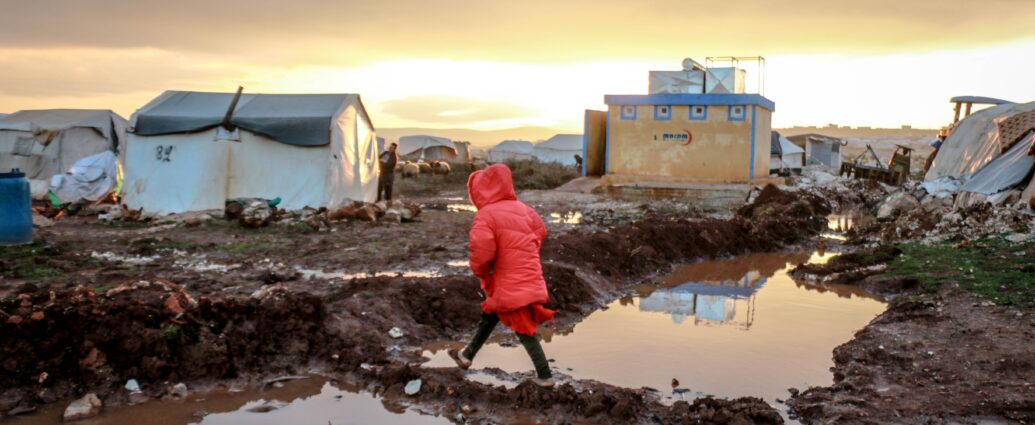Priscilla Tomaz
On the 8th of July, Russia vetoed the United Nation resolution that would have extended the provision of cross-border humanitarian aid to 4.1 million Syrians.
The resolution, which was backed by all Security Council members except for Russia (vetoed) and China (abstained), would have extended the provision of aid through the point of Bab al-Hawa for another six months with an automatic extension in January 2023, unless faced with opposition from the Security Council.
The move was met with severe criticism from the international community. The United States delegate went as far as to say the vote “is what happens when one member takes the entire Council hostage with lives hanging in the balance.”
Russia’s veto forced Western states into an unwilling compromise. Following prolonged negotiations, the Security Council passed a resolution extending the Bab al-Hawa crossing, albeit requiring a second resolution for an extension post-January 2023. Whilst this secures immediate humanitarian aid to north-western Syria, it leaves open the possibility of a second Russian veto in the new year.
Disagreements in the Security Council
Russia’s veto was not unexpected. Since 2020, the Bab al-Hawa crossing has been the only functioning cross-border point after Russia vetoed all other four crossings. Russia believes that cross-border aid is a violation of Syria’s sovereignty, and advocates instead for aid to be carried out by Damascus through cross-line deliveries.
On the other hand, Western states highlight that while the cross-border deliveries provide for 2.4 million people a month, Damascus’ cross-line deliveries have reached fewer than 50,000. As a close ally of Damascus and its president, Bashar al-Assad, Western countries claim Russia and the Syrian Government aim to politicise aid to punish the rebel-held northwest region.
Expectations of a Russian veto on humanitarian aid in Syria were exacerbated by the breakdown of relations between Russia and the West this year due to the war in Ukraine, particularly between Russia and the US.
Amid fears of Syrians being harmed due to disagreement within the Security Council, the head of all major UN agencies, released a public appeal to extend cross-border deliveries.
“[Failure to renew the resolution] will immediately disrupt the UN’s lifesaving aid operation, plunging people in northwest Syria into deeper misery and threatening their access to the food, medical care, clean water, shelter, and protection from gender-based violence currently offered by UN-backed operations,” they claimed.
The future of humanitarian aid and human rights
The UN reported that the number of Syrians in need is now higher than ever. The combination of fighting, the COVID-19 pandemic, drought, inflation, and the war in Ukraine has taken its toll on the country’s economy and accessibility to food. The World Food Programme has said food prices have increased by 800% in the last two years.
The six-month extension leaves humanitarian operations in jeopardy. According to Barbara Woodward, the United Kingdom’s Ambassador, a twelve-month extension was necessary to continue the smooth running of aid delivery. However, humanitarian aid organisations will now be stuck in a cycle of prepositioning and contingency planning. With little choice, humanitarian aid and human rights organisations are preparing themselves for the worst.
Russia has pushed the Council to report on cross-line aid deliveries, as well as deliveries from Turkey and early recovery projects. It aims to decide on the future of cross-border aid delivery in Syria in six months.
A recent report by the Washington think-tank Centre for Strategic and International Studies (CSIS) carried out an investigation into Damascus’ distribution of humanitarian aid through cross-line deliveries.
Besides the increase in threats and torture of Syrian aid staff in the past years, aid is continuously manipulated away from rebel-held areas and towards groups responsible for human rights violations, claims the author of the report, Natasha Hall.
Last year, supplies waited for four months in warehouses before reaching the opposition-controlled northwest Syria. This was due to the regime’s unwillingness to allow NGOs linked to the opposition to distribute them, the report has found.
Humanitarian and human rights groups hope aid will not be further politicised after the resolution’s deadline in January.
Featured image courtesy of Ahmed Akacha on Pexels. Image license found here. No changes were made to this image.
